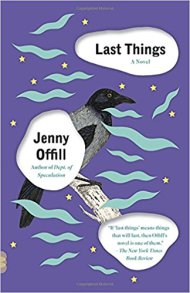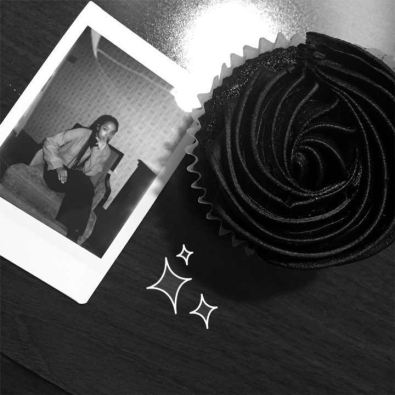The very first novel I reviewed on this blog was Jenny Offill’s beautiful Dept. of Speculation. Since then I have read and reviewed many books, but I wanted to revisit this author I so thoroughly enjoyed the first time around and check out her first novel, published all the way back in 2000, and see if I enjoyed it as much. Spoiler alert: I did! The experience reading this breezy book is that I need to be more open to certain reading experiences I tend to close myself off to, because when done well, they can be really mesmerizing. Sure, it’s hard to do certain things well, and perhaps my threshold for greatness sets the bar too high for many to reach, but when my expectation is met, I am blown away with the results!

I tend, as a rule, to find stories narrated by young characters grating and annoying. Either the writing is much too ornate and precocious that it reads as completely impossible and fantastical that a young narrator would be able to express themselves in such a sophisticated manner, or it reads as making fun, pandering, overly simplistic, or, worse, egregiously misguided. Only one book, until now, had actually been able, in my opinion, to capture authentically and effectively a child’s first person perspective: Room by Emma Donoghue. Aside from that novel, no other rang true. But Offill’s novel Last Things manages to capture a singular voice that never comes off as wise beyond the character’s years, nor overly immature or puerile. It sounds real, it flows convincingly, and the narrative itself is absolutely beautiful.
 Jenny Offill
Jenny Offill
The story is told from the perspective of Grace Davitt, a creative and introspective young girl, daughter to two intellectuals. The novel has many elements of magical realism, and yet the inspiration is different from the genre’s South American origins. If for Marquez or Esquivel the magic derives from culture, history, and location, in Offill’s narrative the magical aspects are provided by Grace’s mother. Anna Davitt weaves fantastical tales for her daughter, whether it’s a monster that lives in the lake close to her Vermont hamlet, or the motivations and private lives of all those surrounding them, daughter and mother have their own key to reading the world. So much so that Anna, a poliglot who has spent considerable time abroad especially in the African continent, attempts to teach her daughter a secret, made up language so that the two of them may communicate in a way all their own, eschewing all others, including the put-upon patriarch of the family.
As the years pass, the language and narrative mature, an impressive and subtle feat on Offill’s part, and certain realities become more apparent. Things come into focus that previously seemed innocuous or imaginary. Behaviors once glossed over are sharply noticeable, and the creativity and passion Anna showcased in the initial chapters of the novel reveal a much more dangerous state of the woman’s mind and suddenly the novel becomes a challenging look at the role that mental illness has in a family that otherwise is home to love and devotion. The journey the book takes the reader on is phenomenal, even if at times difficult, and the swift narration and gorgeous language, intimacy, and imagery are hypnotic. The book is impossible to put down. I read it in a matter of hours, and was mesmerized from beginning to end (even reading passages out loud to my fiancé because of how incredible and beautiful the writing is). I cannot recommend it enough. It’s a true gem that I am so glad to have discovered, and I hope many more will find it and love it as well. Offill deserves more recognition, because she clearly is one of the strongest writers out there whose books command attention. A true must! Really!
Advertisements Share this:
![Heart of the Wolf by [Spear, Terry]](/ai/020/585/20585.jpg)




